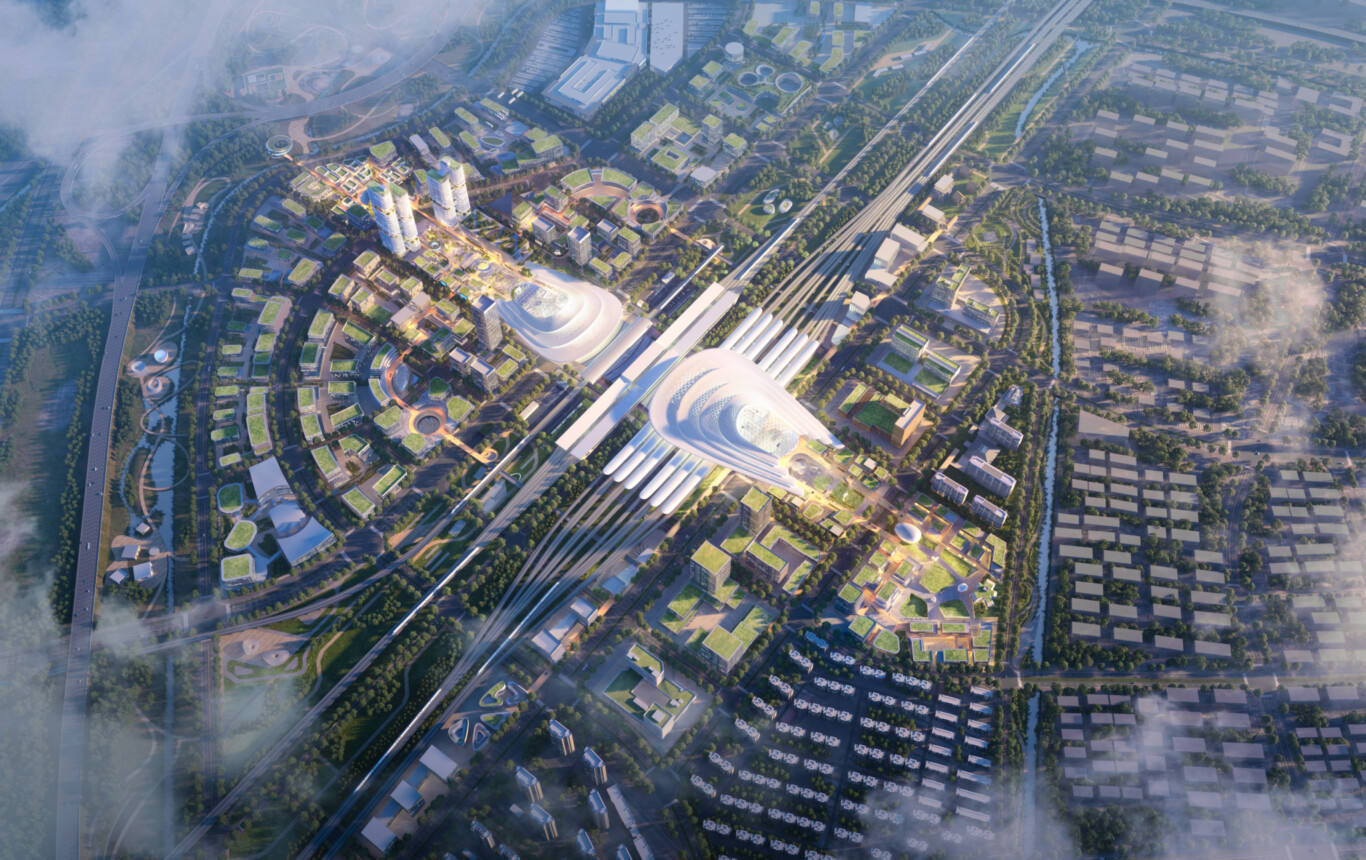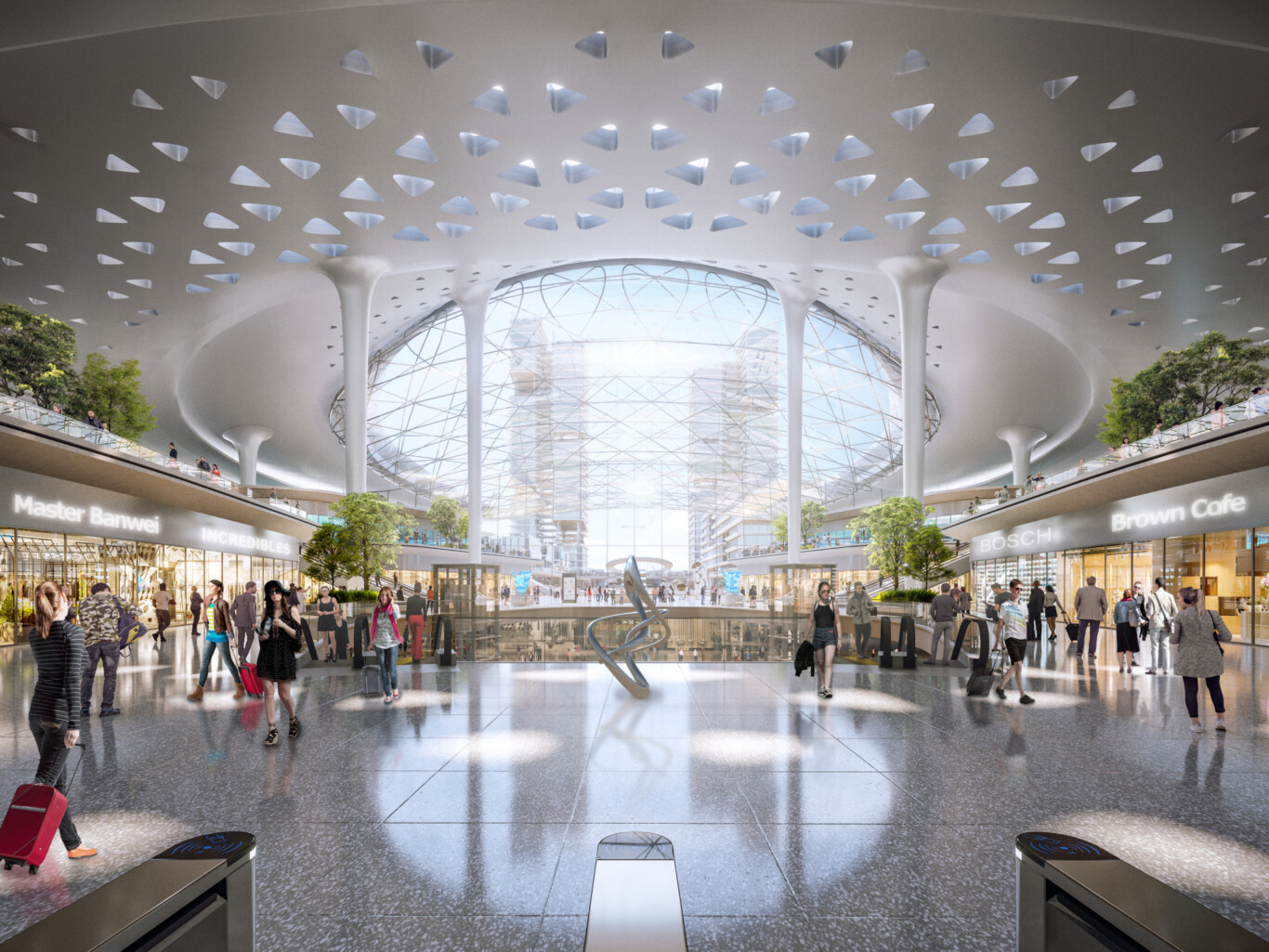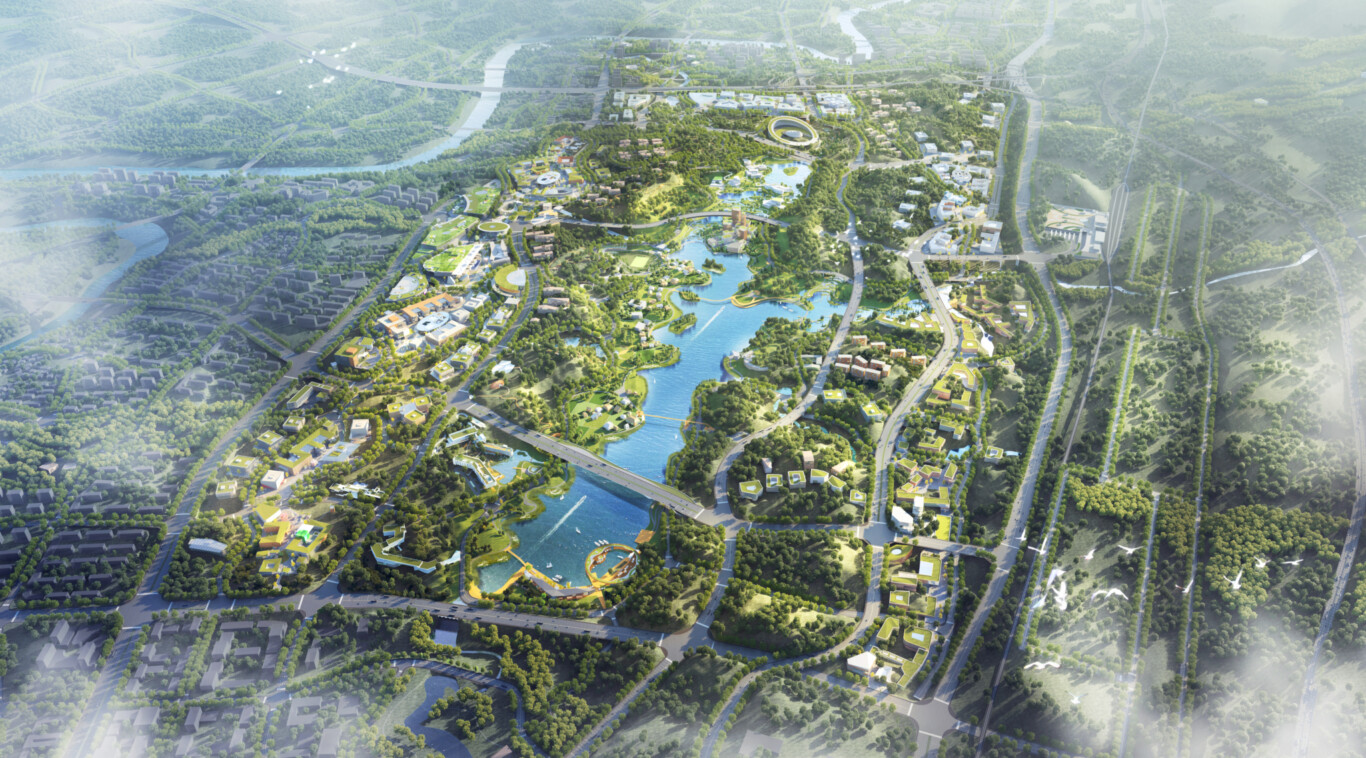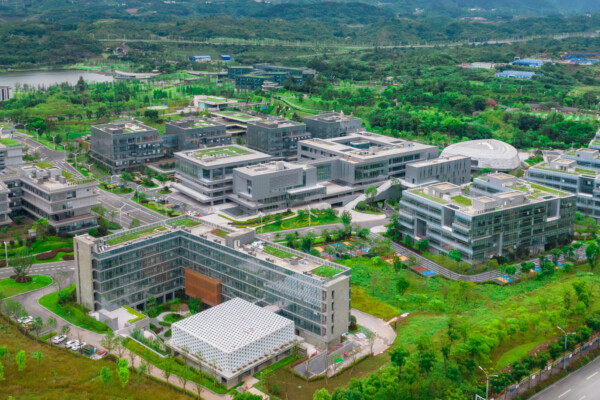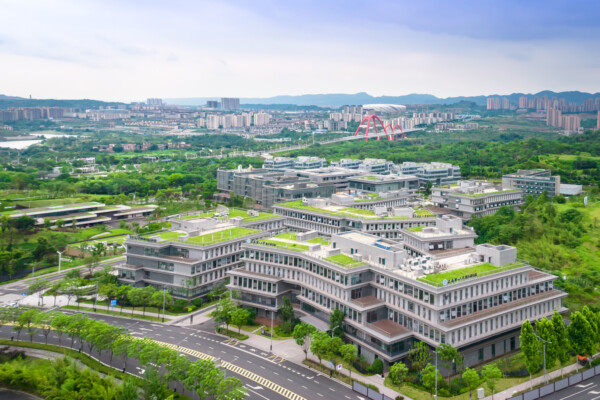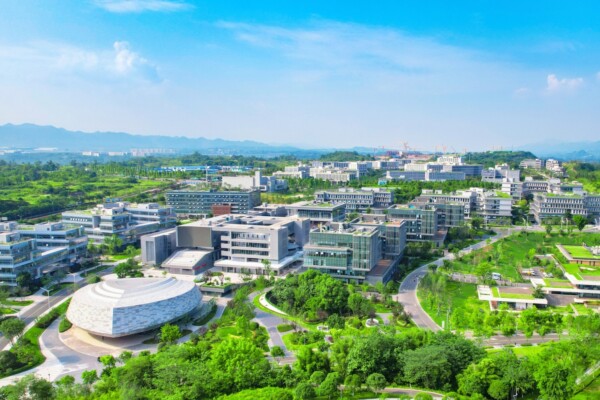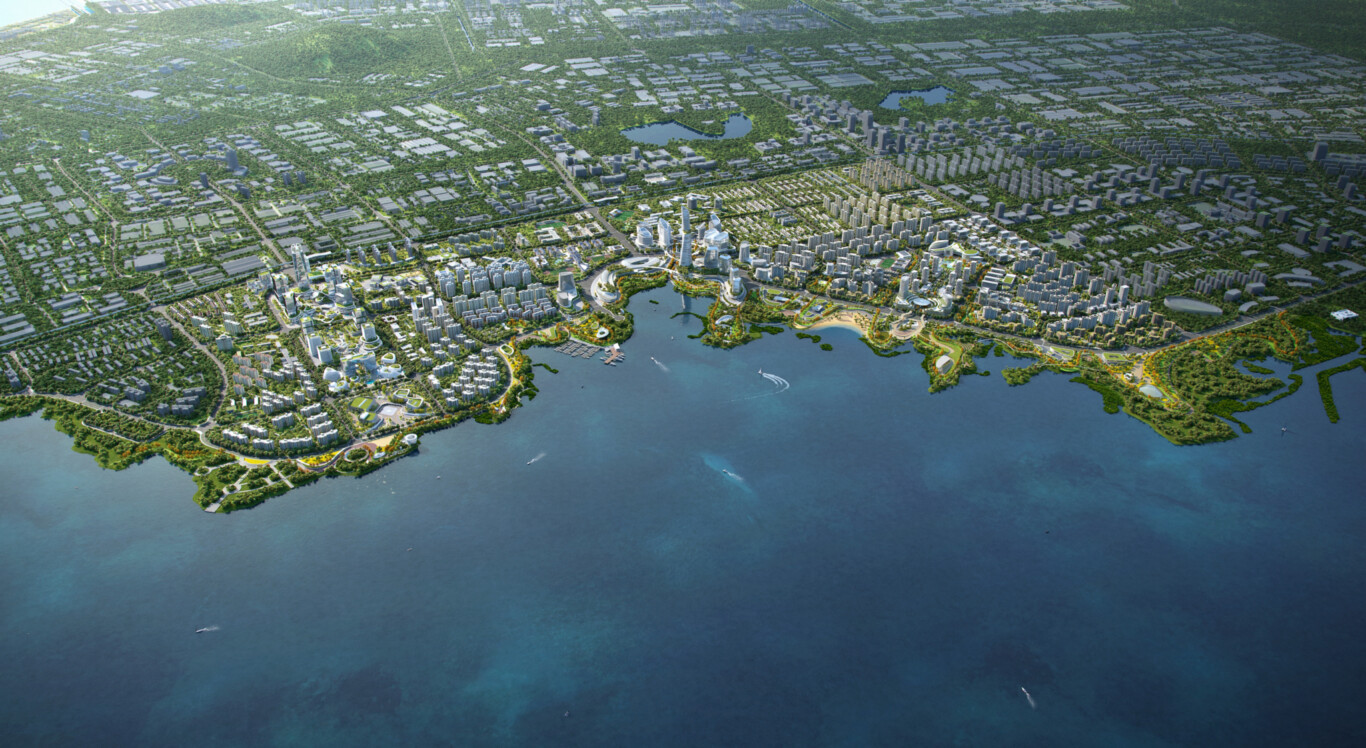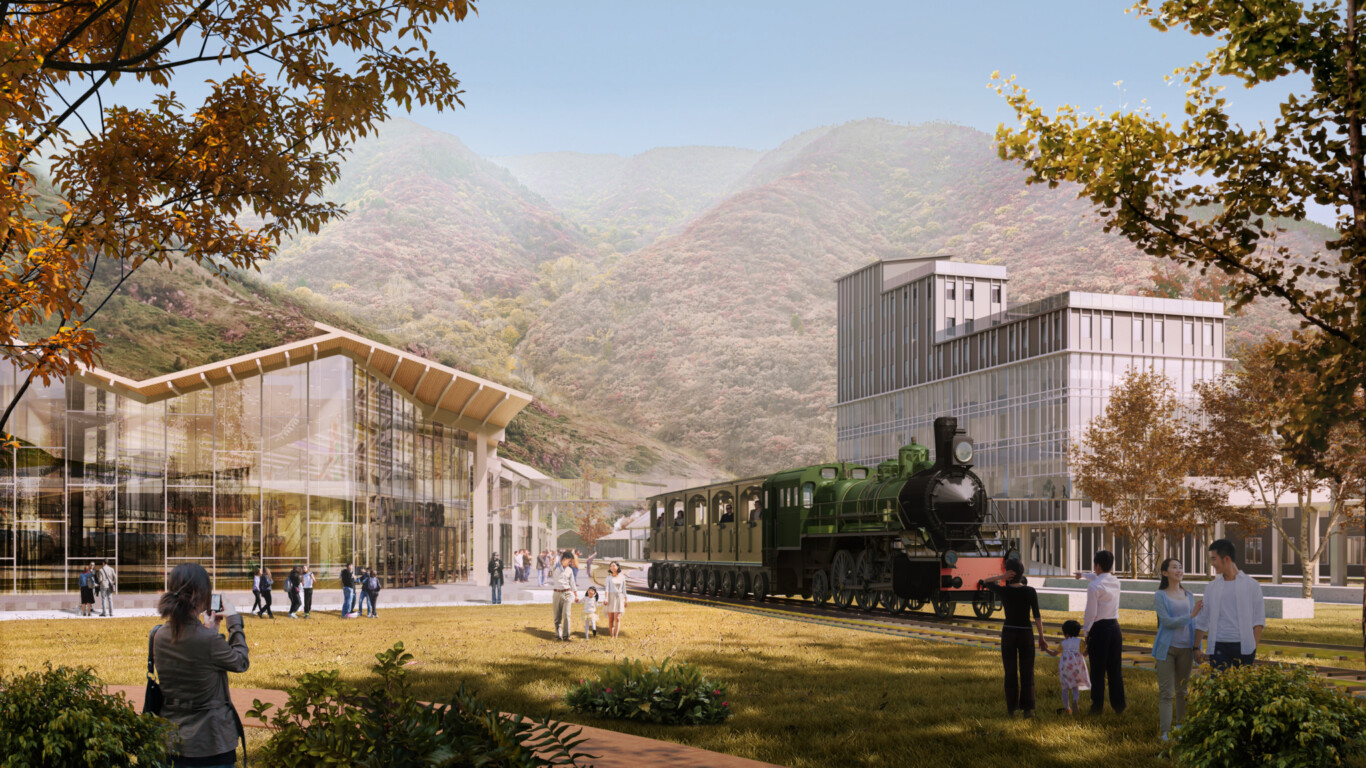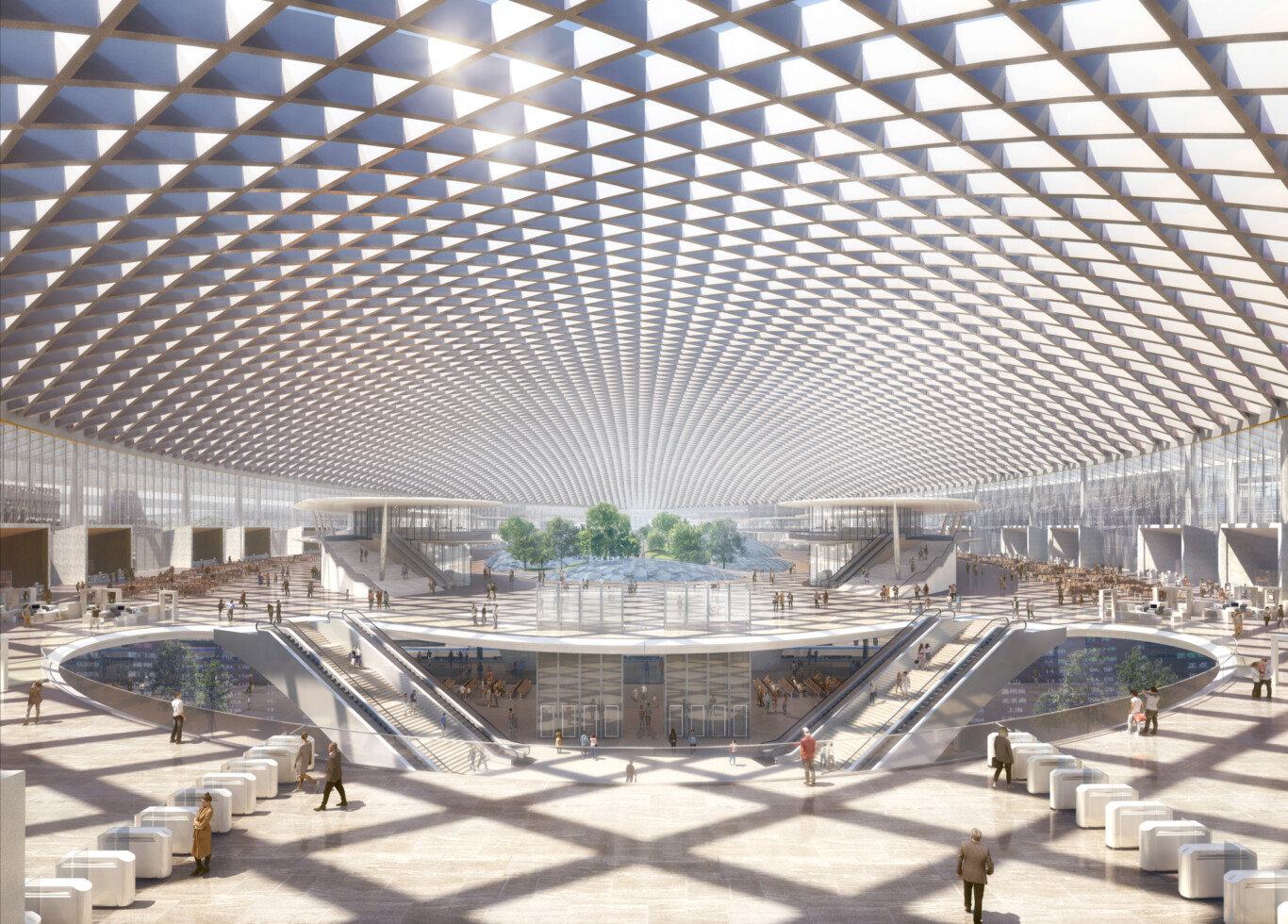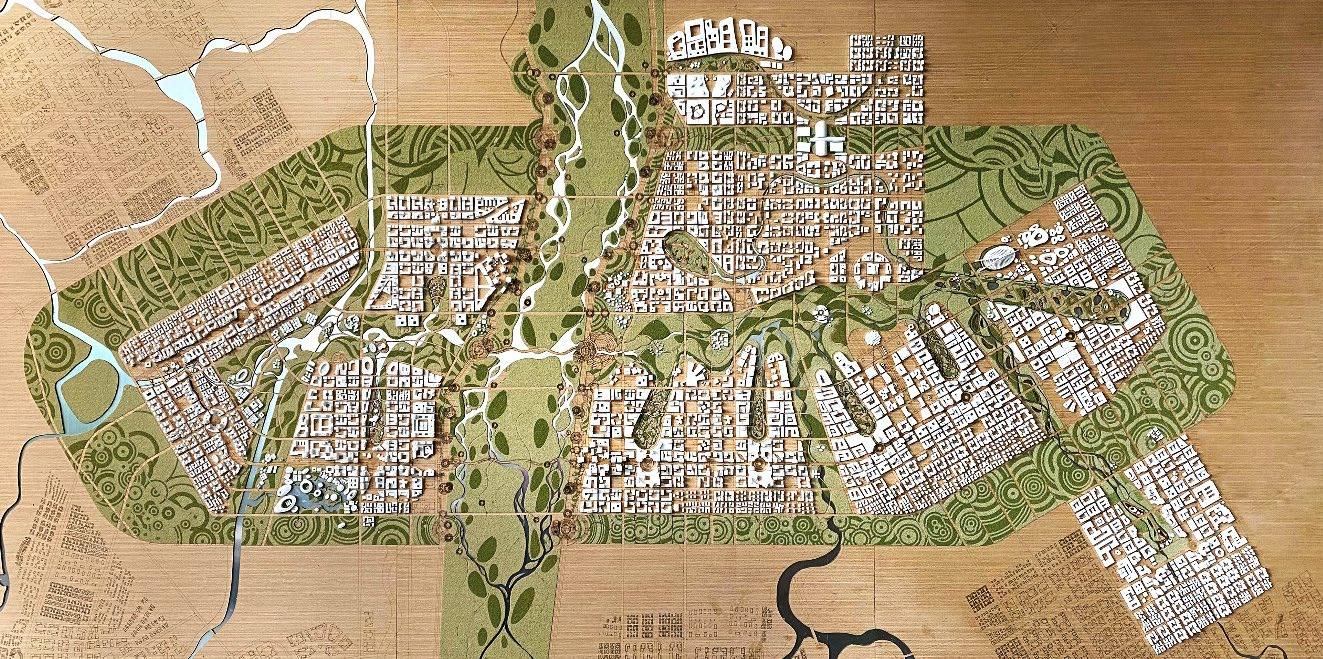
Showcasing six of our recent competition-winning masterplans in China
Some of our recent competition-winning projects are jaw-dropping in scale and ambition. That’s certainly the case with our Chinese masterplans—urban designs for whole areas that improve the lives of residents and visitors alike.
These masterplans are founded on the principles of exemplary placemaking, often including the idea of a 15-minute city (where resources are spaced out and accessible on foot locally according to the frequency of need). They employ the principles of ‘sponge cities’ (conserving rainwater during wet seasons for use during dry periods or managing serious flooding risks) and ‘smart cities’ (using ICT to improve operational efficiency).
Our team in Shanghai is committed to sustainability, not just in terms of the environment but also in the social, economic and ethical aspects, based on the principles of responsible design.
Just take a look at some recent examples.
Xiong’an Xiongzan New Area
The 272km² Xiong’an Xiongzan New Area is a government-supported urban development project to create an ecological, efficient, smart city environment. Our concept was to build a “city with a heart”, as we believe society's most significant natural resource is its people, and its success depends on how they are nurtured and cared for. We wanted to build a city with a harmonious spirit, a sponge city with water and greenery intertwined. Fingers of green space project from the central parks and point into the various city clusters towards the more dense TOD zones of the masterplan.
We create sustainable buildings by implementing modular construction principles, ensuring less environmental disturbance and minimising materials wastage. We wanted the city to be healthy, diverse and smart. On a macro level, the “Sponge City” design makes the city flood-resistant. There are also some micro-level Sponge City functions, such as curbside rain gardens, which filter, absorb and retain street runoff and allow water to return naturally to the water table. In addition, porous materials are proposed and planting local vegetation is a key principle of the masterplan. Green energy is incorporated to support the whole area.
Tianjin South Railway Station
Tianjin South Railway Station aims to transform the South Railway Station area into a high-level regional transportation hub that seamlessly integrates people, culture, and the natural landscape. It also connects with Tianjin's old city by interpreting the traditional city structure for the modern urban environment.
To enhance the pedestrian experience, the design incorporates three-dimensional facilities such as cross-street flyovers, aerial corridors, and sunken plazas. Integrating local flora elements creates an innovative, functional, and ecologically-friendly landscape space.
Chongqing Liangjiang
Chapman Taylor won a major international design competition to create an urban innovation zone on a 6.8 square kilometre site in Chongqing Liangjiang, central China. The Chinese government has chosen Liangjiang as a developmental ‘new area’ for Chongqing, which has a population of over 30 million and is one of China’s four centrally governed municipalities.
The masterplan competition sought designs for an advanced technology research and development district. Our design is based on integrating the beautiful natural environment with the technology facilities and creates a connected series of five university campuses surrounded by R&D clusters.
Yangpu Bay
Yangpu Bay is an area of 5.21 km2 in Hainan's West Wing Development Belt. Our concept envisions a thriving waterfront city inspired by the local ecology of Mangroves, Coastline, Salt Pan and Volcanic Rock. We analysed the site and how to protect birdlife and wetlands, proposing an ecological buffer zone and two hard shorelines. The coastline will become colourful and flood-adapted, with different site elevations to create a high-quality coastal urban form.
As the core development area of Hainan's free trade policy, it will be a modern and distinctive urban service core; a future smart city. There will be five kinds of urban hubs: commercial, residential, research & developmental and ecological. Each hub will introduce green to the city, enhancing the symbiotic relationship between humans and nature and creating valuable public space.
One Line and Four Mines
This 99km² masterplan promotes ecological restoration and regeneration of a historic mining district, Mentougou District, near Beijing. We took our inspiration from the Chinese idea of harmony between man and nature and the benefits this brings to life. 1923 saw the official construction of the Mentougou-Datai section of the Beijing-Mentougou Railway, which bought a steady coal supply to the city and resulted in a century of prosperous history. September 2020 saw the closure of the last mine, leaving damaged habitats and disintegrated community relations.
The masterplan is characterised by the varied nature of the mountain and river landscape, with twelve towns and villages connected by a long winding route along the valley. We have laid out cycling and walking routes and organised multiple cultural tourism trails to create exploratory experiences. The mines will be regenerated and become part of a breathtaking landscape, a picturesque place for people living and working to help them discover their spiritual path. The ultimate goal is to create a resilient masterplanning and development strategy to create vibrant new communities in the mountain landscape.
Jiaxing High-Speed Railway Station
The 29km² masterplan for Jiaxing High-Speed Railway New City and Yuxin District urban design provides a new integrated mixed-use city with excellent connectivity and a diverse ecological framework, taking advantage of existing waterways. The masterplan includes a new railway station, urban district, ecological diversity sites, new waterways and a strategic base for innovation and collaboration.
The masterplan creates two linked core areas based on the new South Jiaxing High-Speed Railway Station and a major new urban district south of the station, Southern New City. The masterplan provides an opportunity to create two overlapping but complementary “15-Minute City” circles centred on the station and the core of the Southern New City. The concept is called "Ring City," emphasising the importance of multiple connections provided with the design strategy.
---
Chapman Taylor is one of the world's leading masterplanners. We can create projects of extraordinary scale from the early concept stage to full completion. Our design approach combines creativity with commercial astuteness to deliver successful places for people to enjoy. Our diverse design skills and cultural understanding provide a unique base to develop high-quality, bespoke design solutions that respond to location, local culture and the client's brief.
